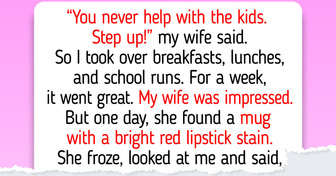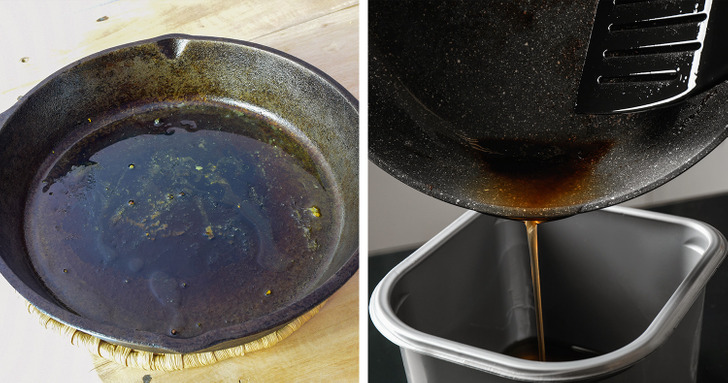lol the last fact😂😂😂
13 Facts That Make Life in Switzerland Totally Unique
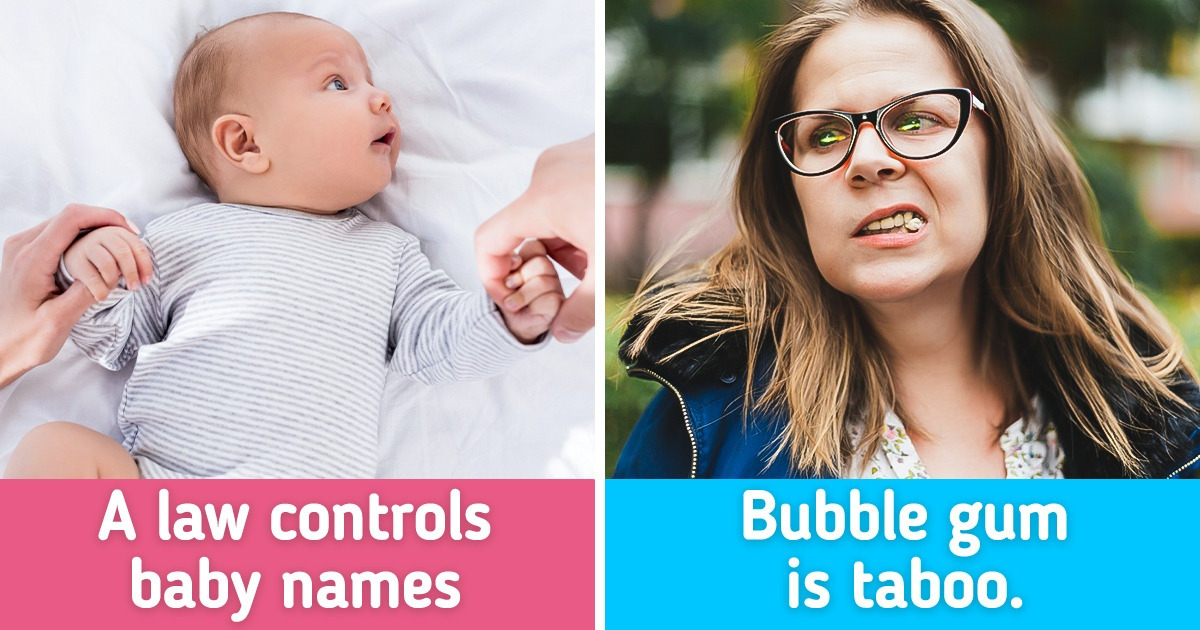
Once someone mentions Switzerland, our brains instantly show us images of picturesque Alpine peaks, fresh cheese, and, of course, bank billboards. But these are only attributes of a façade that hides many curious things that even tour guides won’t tell you about.
The motto of the Swiss is to recycle anything that can be recycled.
People in Switzerland try to recycle any of their trash: newspapers, cans, glass, and even used toilet paper. Food is subject to reasonable utilization as well. For example, while we tend to pour used oil down the drain, the residents of Switzerland pack it into a container and bring it to a reception center.
Passengers get money if their transportation source is late.
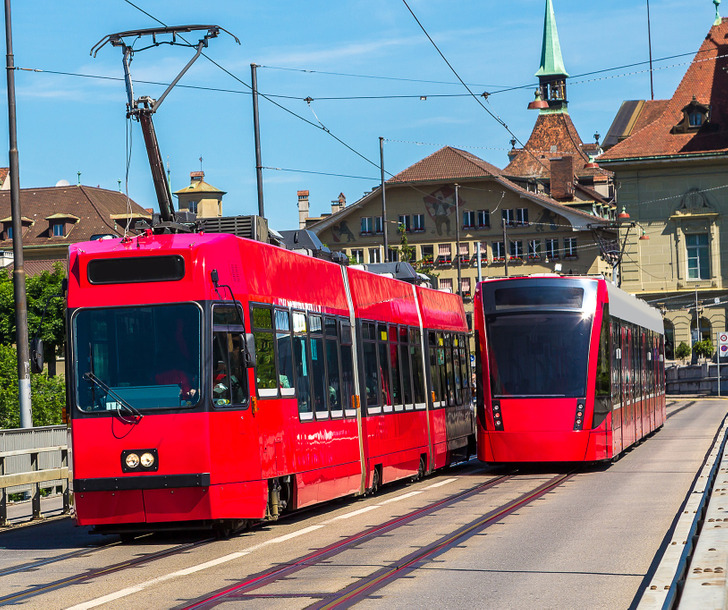
When a means of transport is late by 1 hour or more, a passenger has the right to compensation. It can be up to 50% of the ticket price. If the traveler is forced to seek an overnight stay due to a delay on a trip between cities, the transport company is obliged to reimburse the costs for it. It can evade payment only if the delay of the bus or train was due to a natural disaster.
Local people don’t like bank cards.
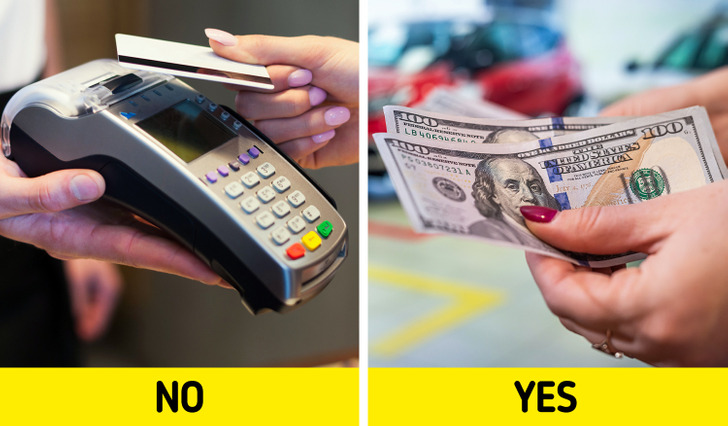
Despite the highly developed banking system of Switzerland, its residents rarely use plastic cards for payment. They prefer cash. Even if they are going to buy something big (like a car), locals will first withdraw the money from their account. This habit is called a Swiss cultural phenomenon.
Swiss people believe that the presence of paper bills in the wallet gives a feeling of the real possession of money, which cannot be said about cards. This makes it easier for them to control their expenses and spend less.
One family — 3 accounts

Instead of debating over which type of budget is better for a family, common or separate, the residents of Switzerland found a compromise. They recommend that young couples open 3 bank accounts upon marriage. One of them should be intended for joint mandatory expenses, and the other 2 — for the personal needs of each of the partners, like hobbies or self-development activities.
Thrifty Swiss people turn off Wi-Fi at home.

Unlimited mobile internet is what the young residents of Switzerland choose today. They switch to the appropriate tariff plan, and then simply activate the hotspot on their phone to use the network while working on a laptop or desktop computer. Home Wi-Fi is no longer necessary, and instead of 2 points of internet costs, they only have one.
Local people like to sugar coat reality.

When starting to work, the Swiss try to show their best in front of HR. According to a 2020 study, almost 60% of resumes are not true. Locals sometimes exaggerate their credentials to a potential employer. For example, they will add a short internship at a big company as work experience. It’s quite interesting that the representatives of the older generation turned out to be the most honed job-seekers.
They don’t feel shy about not leaving tips for waiters.
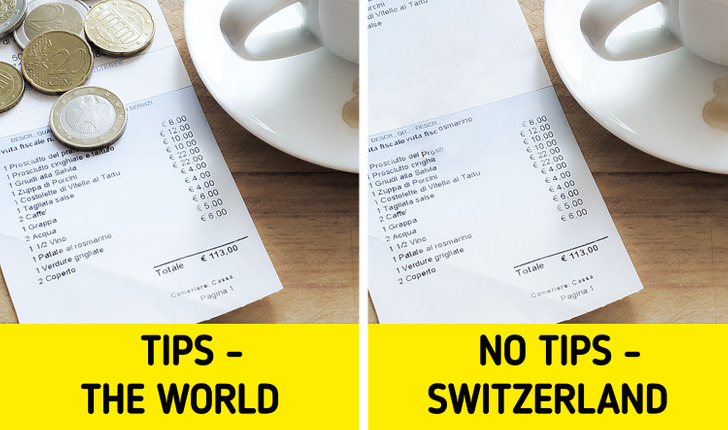
No one will judge a visitor of a restaurant who doesn’t leave any tips to a nice waiter. But when a guest still wants to express gratitude in a special way for the good service, they will simply round up the bill. For example, if lunch costs 14.5 Swiss francs, the visitor will give 15 francs and say, “Keep the change, please.”
You can get female hygiene products for free.
Activists in Switzerland have insisted on installing vending machines with free tampons and pads in schools and universities all over the country. Their goal is to help girls who are caught off guard by a prematurely started period or an empty wallet. Also, the initiators of the project stand for removing the taboo vibe when speaking about specifics of female physiology.
They have chocolate for women in Switzerland.
Residents of Switzerland adore chocolate. The country takes first place in the world in terms of the amount of consumed chocolate. The average resident eats up to 20 lbs of chocolate per year. They also sell chocolate bars that are made especially for women.
According to Swiss chocolate makers, they are able to relieve cramps during menstruation, as they include 17 types of alpine herbs. Specialists in gynecology have confirmed that this chocolate can really be the key to women’s well-being.
Bubble gum is taboo in Switzerland.

Chewing gum loudly is especially annoying for locals. They consider this to be the peak of bad manners. Tourists are recommended to fight the temptation to take their favorite chewing gum out of their pocket and chew it in a public place in Switzerland. It’s better to wait until no one is around and only then chew a piece of gum.
At the same time spitting is the norm.
Residents of Switzerland don’t see anything wrong with spitting on the street. The same thing relates to blowing their nose. Paul N. Bilton, the author of The Xenophobe’s Guide to the Swiss, noted that local people have the skill of blowing their noses extremely loudly and they use it everywhere in public places.
Swiss people blame the “wind” for all their trouble.

Föhn is the name of the wind that sometimes blows from the Alps. By the way, the blow-dryer was named after this wind. While people in other countries often attribute their troubles to magnetic storms, the Swiss blame the Föhn wind for various issues. They use this natural phenomenon to explain their headaches, mood swings, and even car accidents.
You can’t give your child any name you want.

In Switzerland, it is prohibited to give a child a name that could damage the child’s interests. This includes “particularly absurd or offensive forenames,” the Zurich court added, pointing out it had previously given a thumbs down to names such as Djonatan, the phonetic spelling of Jonathan. In one relatively high-profile case, Swiss musician Christine Lauterburg was told she couldn’t call her daughter Lexikon because it was an object, not a name.
Which of these things do you think should be adopted by other countries? Which ones shouldn’t be?
Comments
Related Reads
15 Comics That Can Creep Into the Heart of Anyone Who’s Ever Fallen in Love

18 Stories That Prove a Cleaner’s Job Is About More Than Just Dusting
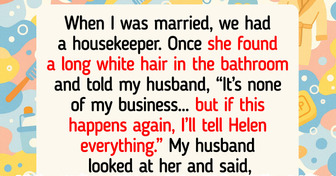
14 Times Kindness Was the Plot Twist No One Saw Coming
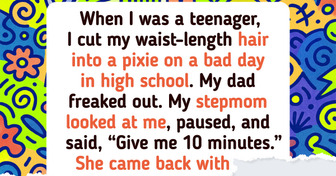
12 Moments That Prove the Simple Power of Kindness Can Move Mountains
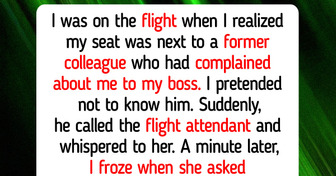
I Refused to Help My Sister Save Her Dying Kid, My Money Isn’t a Family Tradition
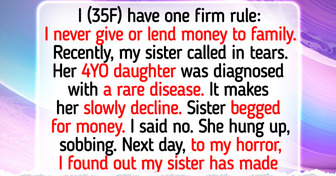
I Put My Family First for Years—Then They Made Me Regret It When My Wife Was Expecting
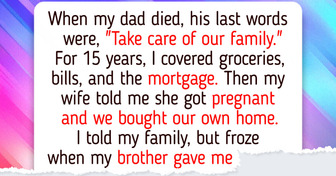
10 Stories That Prove Kindness Is the Ultimate Cure
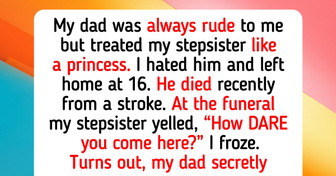
14 People Who Walked Straight Into Awkward Moments

I Absolutely Refuse to Delay My Retirement to Save My Spoiled Daughter and Her Son
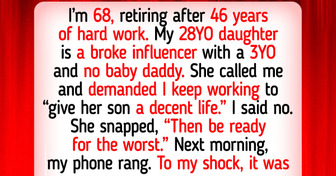
I Refused to Reply to Work Emails While on Vacation, Now HR Is After Me
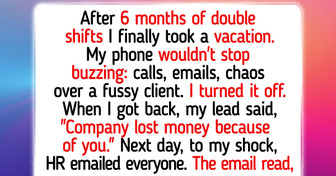
12 People Who Mastered the Art of Keeping Their True Motives Hidden
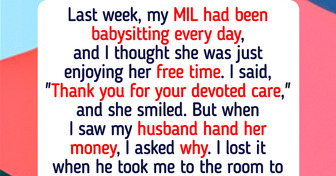
I Tried to Be the Husband My Wife Needed — She Figured Out What I Was Actually Doing
